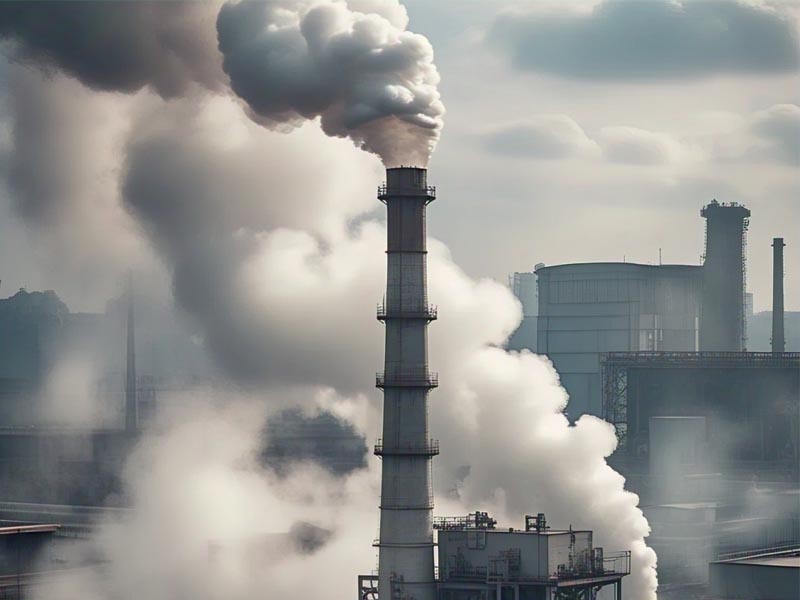
Resilienceapac – Big Polluters have long been at the center of the climate crisis, yet the burden of climate-related disasters overwhelmingly falls on the world’s most vulnerable nations. In 2024 alone, extreme weather events including floods, heatwaves, droughts, storms, and wildfires have devastated countries such as India, Brazil, Nigeria, the Philippines, and much of West and Central Africa. Lives have been lost, homes destroyed, and economies pushed to the brink.
One stark example is Pakistan, which suffered catastrophic flooding in August 2022. The monsoon rains, intensified by climate change, killed over 1,500 people and caused economic damages exceeding $30 billion. Scientific research quickly confirmed that climate change had played a significant role in worsening the disaster. This pattern repeats across the world, as Madagascar’s cyclones and Somalia’s relentless droughts cause widespread destruction, deepen debt, and divert funds from essential services like healthcare and education.
With the link between carbon emissions and extreme weather now well established, the question of who should bear the financial burden of climate losses and damages has become a critical global debate. The upcoming COP27 climate summit will tackle this contentious issue as climate-vulnerable nations push for concrete financial commitments.
“The Final Curtain: The End of the Musical”
By 2030, annual climate-related losses in vulnerable nations could reach between $290 billion and $580 billion. By 2050, that figure is projected to rise to an astonishing $1 trillion to $1.8 trillion. UN Secretary-General Antonio Guterres has been vocal about the injustice of this crisis. Arguing that “polluters must pay” because “vulnerable countries need meaningful action.” Despite these calls, wealthier nations and major fossil fuel companies have resisted taking full responsibility. Instead relying on limited humanitarian aid to address the issue.
What if Big Polluters were truly held accountable for their role in climate change? A study by Dartmouth College in the U.S. found that between 1990 and 2014. Emissions from the U.S. alone caused over $1.9 trillion in global economic damages. Meanwhile, China, Russia, India, and Brazil collectively contributed to an additional $4.1 trillion in losses. These figures highlight the vast economic toll inflicted by a handful of major emitters.
A potential solution would be the establishment of a loss and damage finance facility under the UN Framework Convention on Climate Change (UNFCCC). This fund would require contributions from countries based on their historical and ongoing emissions, ensuring accountability and fairness. Unlike voluntary climate funds, which rely on goodwill, a structured mechanism would legally bind Big Polluters to compensate affected nations.
The world’s most climate-vulnerable nations have long advocated for such a system. Arguing that it would allow them to recover from disasters and build resilience against future climate threats. However, wealthier nations have repeatedly resisted. Citing concerns over financial liability and preferring to offer short-term aid rather than commit to a long-term financial responsibility.
As climate disasters become more frequent and severe, the need for a just financial mechanism is more urgent than ever. The question remains: will Big Polluters finally be made to pay, or will the world’s most vulnerable continue to bear the cost of a crisis they did little to create?
“Digital Strategy: The Key to Success in Penetrating the Global Market”
[SITE_NAME] – Nature-based solutions have emerged as a core strategy Asia-Pacific resilience, addressing climate risks and natural disasters by integrating…
[SITE_NAME] - The urgent need to develop resilient health systems climate challenges has become a global priority as climate change…
[SITE_NAME] - public policy reform trends are significantly influencing social resilience in the Asia-Pacific region, as governments implement innovative frameworks…
Resilience APAC: Asia-Pacific Hub for Reform - Taiwan's earthquake-resilient community infrastructure investment is under renewed scrutiny following a series of…
Resilience APAC: Asia-Pacific Hub for Reform - climate risk planning data analytics plays a crucial role in helping organizations anticipate…